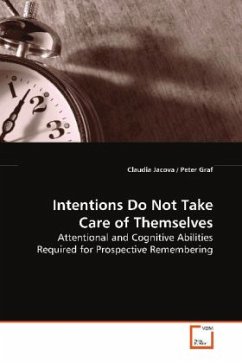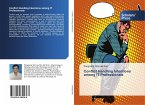Prospective memory enables us to act on an intention
that we formed at an earlier time. This type of
memory is distinct from retrospective memory, that
is, the recollection of past events. Personal and
social functioning would not be possible without
delaying actions until an opportune time. In turn,
remembering when the time is right poses unique
attentional and cognitive challenges. Typically our
attention and thought are engaged elsewhere.
Remembering that we need to put into practice an
intention requires mental work and attention beyond
what we allocate to ongoing activities. We may need
to think flexibly to recognize cues to our
intentions. In this book we describe experimental
laboratory studies with undergraduate students at the
University of British Columbia Department of
Psychology. The prospective memory task was to
interrupt responding to perceptual stimuli when a
picture cue was noticed. In the first study series we
manipulated the attentional demands of ongoing tasks
to determine the resources required for remembering.
In the second study series we investigated the
relationship between tasks of divergent thinking and
remembering.
that we formed at an earlier time. This type of
memory is distinct from retrospective memory, that
is, the recollection of past events. Personal and
social functioning would not be possible without
delaying actions until an opportune time. In turn,
remembering when the time is right poses unique
attentional and cognitive challenges. Typically our
attention and thought are engaged elsewhere.
Remembering that we need to put into practice an
intention requires mental work and attention beyond
what we allocate to ongoing activities. We may need
to think flexibly to recognize cues to our
intentions. In this book we describe experimental
laboratory studies with undergraduate students at the
University of British Columbia Department of
Psychology. The prospective memory task was to
interrupt responding to perceptual stimuli when a
picture cue was noticed. In the first study series we
manipulated the attentional demands of ongoing tasks
to determine the resources required for remembering.
In the second study series we investigated the
relationship between tasks of divergent thinking and
remembering.








